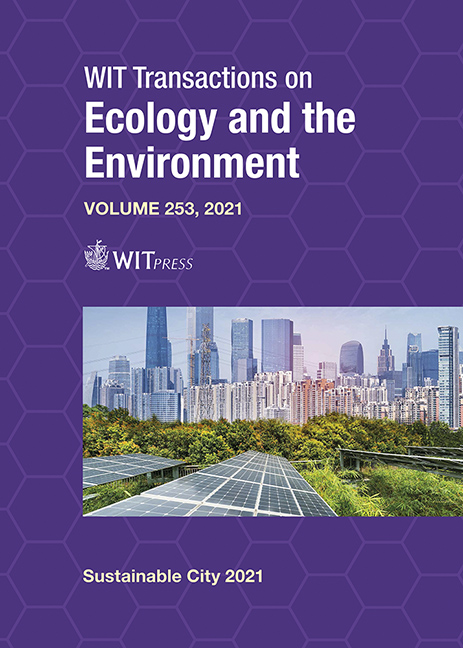WATER SUSTAINABILITY: A CASE STUDY USING SOCIAL AND ECONOMIC METABOLISM PERSPECTIVE
Price
Free (open access)
Transaction
Volume
253
Pages
12
Page Range
241 - 252
Published
2021
Size
794 kb
Paper DOI
10.2495/SC210211
Copyright
Author(s)
ELSA GÓMEZ-VILLÁN, PURIFICACIÓN VICENTE-GALINDO, NATHALIA TEJEDOR-FLORES
Abstract
The search for sustainability, which is understood as a situation that ensures the basic needs of the present while guaranteeing these exact needs for future generations, is present in each of the agendas of the highest authorities of the different countries around the world. In this same context, the study of efficiency in the use of aquatic resources and the interconnections between water use and socio economic variables within a society will provide enormously beneficial information for studying the sustainability of this element. The main objective of this research is to know the principal uses of water and its interactions with socio-economic factors within the Spanish State. For this purpose, we use the MuSIASEM methodology, a technique capable of identifying and taking the economic, social, cultural, political, technical, and environmental dimensions in a precise analysis. Therefore, this method can study this element extensively, enriching the research through multivariate techniques, such as the HJ-Biplot. This study proves the effectiveness of the MuSIASEM methodology and the multivariate technique HJ-Biplot in the practical case of the Spanish State during 2018. We concluded that the complementation of both methods achieves an efficient and exhaustive study of the relationships and individual behaviour of the different social, economic, and water use-related variables. After that, these results can be used to study how to reduce the consumption of water resources in the Spanish State and achieve a fair and respectable consumption for both humanity and the planet.
Keywords
MuSIASEM, HJ-Biplot, Sustainability, sustainable development, Spain, water use, water-energy-food nexus





